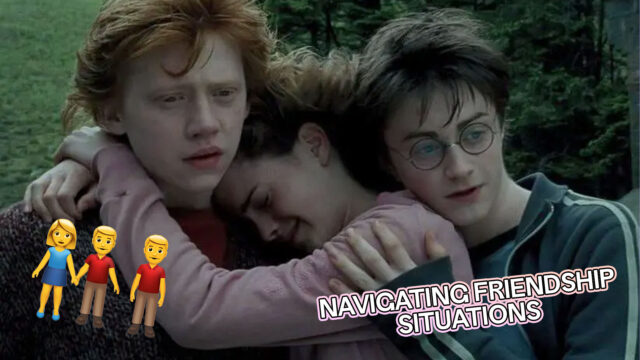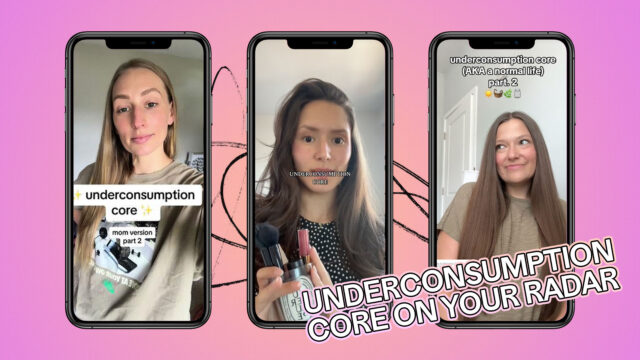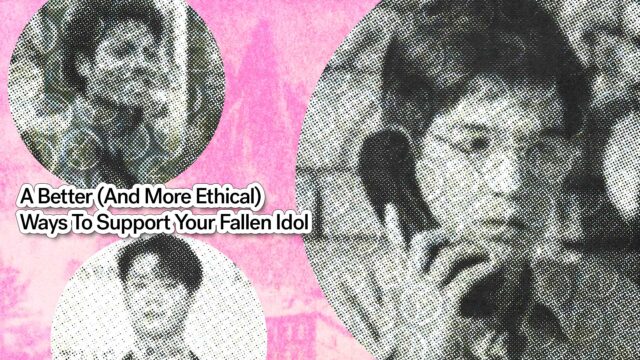Like with any job, being a freelancer comes with its own benefits, risks, and challenges.
Out of all the careers that are deemed viable in this day and age, no career has gained steam like that of being a freelancer. The idea of being independent, setting your own hours, being your own boss, and doing what you love has attracted many people to freelancing, especially among Millennials and Gen Z. It is estimated that there are millions of freelancers, both registered and unregistered, in the Philippines. There are websites that you can go to with the sole purpose to find, hire, and market freelancers and independent workers in the Philippines. It has reached the point where a bill that adds extra pay and protection for freelance workers was passed in the House of Representatives and is currently being discussed in the Senate.
But is being a freelancer as great as some people paint it out to be and is it a viable career path? To answer these and more, we interviewed young freelancers in the Philippines to get a sense of what it really is like to work in the field as freelancers.
Related: How I, A Fresh Graduate, Got A Job During The Pandemic (Hint: It Wasn’t Easy)
Starting Out
Nicolette is a 21-year-old who graduated from college in May 2020. Starting freelancing full-time in June 2020, her freelance work mainly consists of photography and videography, but she does graphic design projects on the side. Carissa, a 22-year-old, has been freelancing for 2 and ½ years, right after she graduated from college. She used to do event photography and graphic design for a variety of clients, from startups to well-established corporations. As of last year, she focused more on commission-based illustrations from clients that range from non-profit organizations to regular people.
Pat Kay is a 24-year-old freelancer who has been on the job for about three years now. Her work consists of freelance video editing, videography, and photography. Ali is a 23-year-old freelance video editor since 2019. Alex is a 22-year-old fresh graduate who has been a freelance graphic designer since September 2020.
People enter the world of freelancing for one reason or another, and that was true for the freelancers we talked to. Some said that they became a freelancer because of unsure job prospects post-graduation. “After graduating college, I applied to lots of different companies. Finding a job was tough,” said Nicolette. She adds that a lot of friends were beginning their own businesses and asked her to take photos and videos for their brands, which she said yes to. Nicolette was still unsure of her skills at the time, so she worked for free.
“I had originally seen these projects as means for me to prepare myself for working for a big agency, but I kept getting inquiries. A few months passed by, and I slowly built the confidence to officially call myself a photographer and videographer—a huge, scary step for me. And I’ve been doing freelance work full time since,” she continues.
Like Nicolette, Alex tried to apply for a job after graduating but was left hanging most of the time. “Companies were either letting people go or not hiring fresh grads like me with little experience.” In July 2020, Alex got word from a friend that he should try marketing his graphic design skills online and his search led him to Upwork.com. Alex set up an account and within a week got his first project. “I made a poster for this kid from Malaysia for his science class. Pretty basic, but he paid me $10 for it and I continued from there.” He has been working on Upwork ever since.
Carissa, meanwhile, was torn between working independently or for corporate. “It was job hunting season for me and I didn’t want to rely on the chances of me getting a job right off the bat after studying, so I figured reaching out to potential clients by myself wasn’t that bad.”
Others said that they initially went into freelancing for the experience. “I started freelancing to get a taste of different industries and what I liked and didn’t like doing with the kinds of projects I would work with. I wanted to feel out my capabilities and also build my portfolio,” said Pat Kay. Ali adds, “I initially started freelancing to practice and develop my skills in photography and video production. It’s also a good way to experience how it is to work with clients directly.”
Life As A Freelancer
A lot of people have said a lot of things about what it means to be a freelancer and the freelancers we talked to all had their own definition of what it means to be a freelancer. “A freelancer is a person who creates a business around a certain skill they may have. They market their skills, offering them as a service to different people and businesses,” says Nicolette. “I would define it as marketing yourself as a specialized service for a specific workload. I guess you could also call yourself a one-man company, in a way. It’s pursuing whatever craft you’re good at and looking for people who need it,” adds Carissa.
Pat Kay feels like being a freelancer is “someone who works on their own autonomy and works for themselves instead of working in a company.” Meanwhile, apart from a professional who is self-employed Ali believes that it also entails “finding and managing multiple clients independently.”
Because of the shifting schedule that a freelancer works with, how a typical day goes for the freelancers depends on what’s going on in their lives. For Nicolette, she usually starts working on a project after lunch. “If I have no specific client work to accomplish, I’ll spend the time doing admin work: updating my Instagram, reaching out to potential clients, brainstorming personal projects.” When she’s free, Nicolette takes online classes such as photography, cinematography, branding, and editing. She usually stops working after dinner. Carissa starts working as soon as she can. “When I don’t have projects, I look for potential clients through online freelance websites or even specific Facebook groups. In terms of commissions, I would always try to market them at least once a week so that clients know that I’m open for work.”
Alex usually starts working after lunch until dinner time, but he can and has extended working late nights. “Most of my clients are internationally based, so sometimes if I have a meeting, it’s going to be late night or early morning PH time.” Pat Kay’s schedules these past months have been unpredictable. “It depends on the kind of project I’m doing at the moment but usually, I start my day by making a list of what I have to do for the day on Notion. It’s important to really schedule your time because while you do have freedom in being a freelancer and you aren’t tied down to any company to tell you what your day should be like, it gets pretty exhausting to think about how to structure your own days,” she explains.
The Benefits
A big reason why people see freelancing as a viable career is because of all the perks that come with the job, something that the freelancers said they enjoyed too. Alex loves the freedom the job provides. “Technically, I’m my own boss, so if I don’t feel like working, I can just take a break without getting in trouble or feeling guilty.” Carissa feels this way as well and adds, “I like the creative freedom that comes with it. On one hand, you choose the client. On the other hand, they choose you. Though this rings true to other companies, it means that you have a certain edge that only you can provide for them. I also like that I’m in charge of my own time. I have time to pursue my other hobbies without risking so much time to focus on your workload.”
Pat Kay also enjoys the freedom of the job as she explains “I can pick my own projects and also have a wide array of experience doing different types of projects. I could pick my own schedule. If I’m close to feeling burnt out or I feel sick, I don’t need to ask for permission to rest. I could just rest whenever I want to.”
Nicolette, meanwhile, likes how she can meet and interact with different people. “I get a new set of workmates every week and getting to know all of them has been great fun. I absolutely love the culture of small, online businesses. So, many of these owners have such refreshing business models that are based on inspiring company values.”
The Challenges
But a big sticking point for the freelancers was the financial situation of the job, an area some described as “not too great.”
“I get paid in dollars, so the money is okay, but it’s not consistent unless you keep on getting jobs,” says Alex. Nicolette says she typically makes the same as most entry-level jobs per month, but that isn’t stable as her income can fluctuate depending on what kind of work she gets. “The tricky part is that camera gear is expensive. I have to save before most purchases.”
Carissa and Pat Kay were more candid about their money situation. “In all honesty, not too great. Being in charge of your own finances is a feat in itself, but what if there isn’t any to be talked about at all? So, whenever I bag projects, I always do my best to finish it properly, because I don’t know when the next one will be,” explains Carissa. “I’m going to be real, it hasn’t been good,” expresses Pat Kay. “Creating films or holding events is still dangerous and very costly for companies because of all the protocols that need to be implemented in order to ensure everyone’s safety. I’ve had to take a bit of a break from doing videography work and a little bit of photography work. I’m more of a video editor now. I don’t get projects as much as I did before, so it’s been tough.”.
There are other downsides as well. For Nicolette, she misses “being on a team and working towards long-term goals with others. Plus, I miss being surrounded by other creatives. Most brands that hire me don’t really have a creative person on their team, so I don’t really get to get all technical and nerdy with my clients.” Carissa hates how you aren’t sure when you’ll get your next client. “You need to actively search for job opportunities by yourself because that’s how you earn and pay your bills and necessities. It’s a double-edged sword that may do more harm than good.” Alex agrees and adds “One day you have a project and the next you don’t. There’s never a guarantee that you have something to do once your current project is done.”
Ali hates how freelancers get judged or misunderstood because they don’t work on a set schedule but instead through projects. “You’re seen as an amateur even though I do work that is just as good, if not better than what people do in agencies and companies.”
Pat Kay bemoans the lack of job security of being a freelancer. “While there is this illusion of freedom, you don’t get a lot of benefits that regular office job employees get. You have to figure out how to do your own taxes, you don’t get any health insurance, and you don’t have Christmas bonuses. There’s a lot more you don’t get but unless you work for really good paying clients or are a very established freelancer in your industry, financial security is going to be a struggle. I’m so jealous of people who have company cards that they can just use to pay for their meals. Also, clients can f*ck you over any time and you don’t really have a lot of protection from anyone!”
With that being said, some of the freelancers said that they are planning on switching careers in the future. “I plan on switching careers eventually, though I’m in no rush to do so,” says Nicolette. “I do see myself working for a company as a graphic designer, but I’m not rushing to make that happen anytime soon. Maybe in a couple of years, I’ll shift,” adds Alex.
Thinking Of Being A Freelancer?
When asked about what they want people to know about what being a freelancer is like, they had a lot to say. According to Nicolette, “Without the right mindset, you will feel like a failure most of the time. You’re constantly putting yourself out there, and honestly, not everyone cares.” Carissa says, “Being a freelancer is basically being a one-man-team. In being a freelancer, you need to set boundaries for yourself. You may think you can do anything and everything, but your health is still the most important out of all. Don’t take it for granted.”
Alex and Pat Kay, meanwhile, have a warning for people who think being a freelancer is their golden ticket to a successful career. “Being a freelancer is not all rainbows and sunshine. If you aren’t careful, you can easily get f*cked over by your client and have little to fight back. People will look down upon you,” says Alex. Pat Kay adds that “When you switch to wanting a full-time job, most employers don’t consider freelancing as actual experience. You get this illusion of freedom of choosing your own time and creating your own life plans but then everything is very unpredictable. If you have no security blanket, it’s a very risky path.”
The freelancers have advice for people looking to turn freelancing into a viable career. “If you choose to do freelance work, make sure it’s something you enjoy. That way, even when you fail, you’re still getting better at something you love. That’s what stops you from giving up,” says Nicolette.
“Learn to be patient. You can’t expect people to reach out to you the moment you become a freelancer. You need to set up a foundation of your core skills before reaching out. Creating your portfolio, polishing your resume, double-checking your contract—these are but a few of the many things you need to think about before reaching out to people,” details Carissa. “They’re just a handful at first glance, but many hours have been poured just to make it happen. Luck also plays a big hand when freelancing, you never know where it’ll come from, may they be recommendations from friends or someone just so happened to pass by your works, you’ll never know when your lucky strike will hit.”
“The beginning will always be the hardest. Unless your famous, you can’t just say that you’re a freelancer and people will come to you. You have to hustle and get your name out there because the competition is real. You have to build yourself from the ground up,” explains Alex. He furthers, “It’s ok if you don’t know everything in the beginning. Have a feel for things first so that you can be confident in setting your rate and/or contract.”
Pat Kay, meanwhile wants people to be open-minded when entering the world of freelancing. “If you don’t want to do your own taxes and want financial security sooner, it’s not really worth jumping into. I think you could build your portfolios and experience from companies first and then decide whether that’s the company life is for you or not. Did you know, you could also freelance while doing a full-time job? So, maybe do that.”
Advice For People Finding Their Calling
Finally, with batch 2021 recently graduating from college and high school, there is now a new batch of students looking for work or thinking about their careers. Here is what the freelancers had to say about it. “Don’t rush. You may feel pressured about others getting a job first, and it’s normal! However, don’t let this thought burden you too much. You might regret going into a job you’re not into just for the sake of having one. Not everyone has the luxury of choosing their own career path, but as much as possible, pursue one that you love because that’s where you’ll pour your blood, sweat, and tears in. If not, then it’s a learning journey!” says Carissa.
Alex answers in the same vain and says “It’s okay if you don’t have everything planned out right away. Unless you found the perfect job of your dreams, there’s nothing wrong with taking your time to find out what you want to do in your life. It’s a marathon, not a sprint.”
Nicolette, meanwhile, wants people to hone on what they do best. “This is such a tough time to be entering the workforce, so don’t pressure yourself to get results. Put your energy into the things you enjoy, and share that journey. No matter what it is, practice it, and be proud of it. Stay humble, work hard, and you’ll be surprised at how many people will support you.”
Continue Reading: This Is What The Workplace Thinks About The Gen Zs





